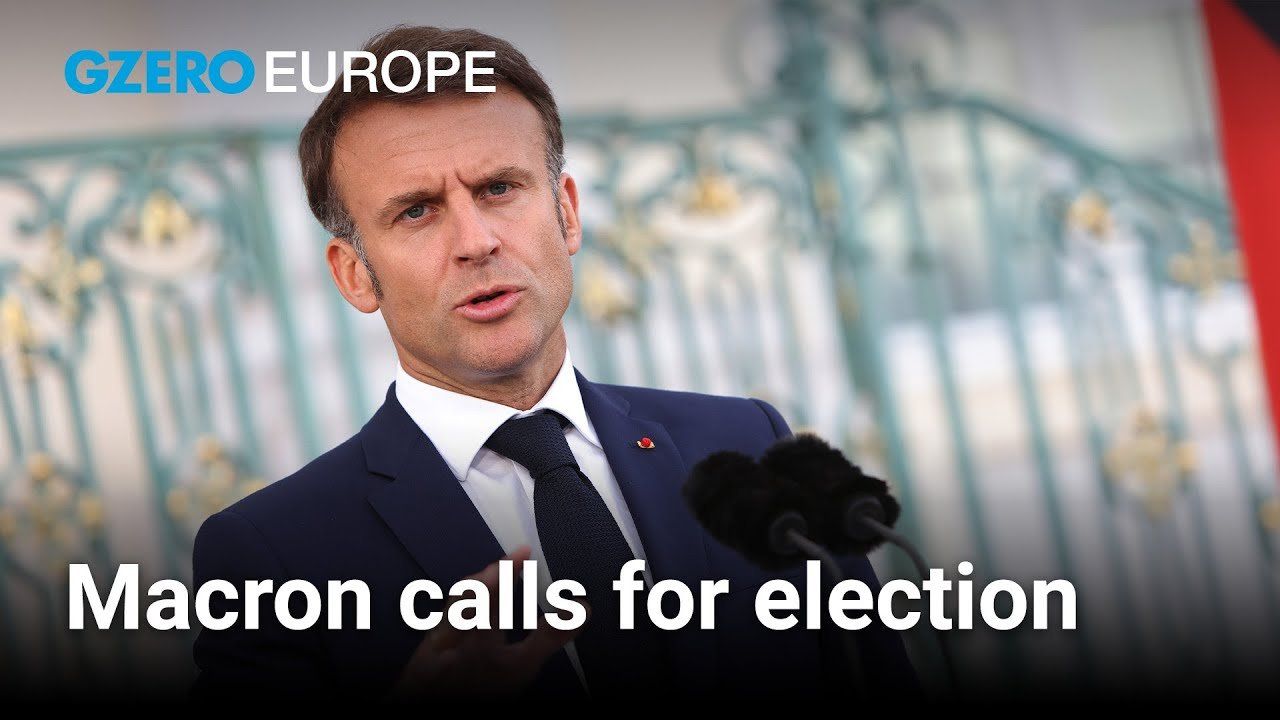GZERO Europe
Macron's call for a snap election in France is a huge gamble

Why France President Macron is calling for a snap election | Europe In :60

What happened in the European Parliament elections? Why is President Macron calling for a snap election in France? Carl Bildt, former prime minister of Sweden and co-chair of the European Council on Foreign Relations, shares his perspective on European politics from Berlin, Germany.
What happened in the European Parliament elections?
Well, there was a shift, no question, but not the fundamental shift to the far-right that quite a number of pundits have been speculating about. If you look at what's been the sort o, the governing coalition, if you might use that phrase, of the center-right DPP, the Social Democrats, and the liberals Renew, they used to have roughly 59% of the seats in the European Parliament. They now have 56% of the seats in the European Parliament. It is a shift, no question about that, but hardly a fundamental one. And I don't think you will see much of a shift in policies resulting out of that.
Why is President Macron calling for a snap election in France?
Well, of course, even if there wasn't the major shift in European Parliament, there was a significant shift in individual countries. And, most dramatically, it was in France where President Macron suffered a very significant setback with the far-right, combined, getting roughly 40% of the electorate. Well, he decided this can't go on. So, he dissolved the National Assembly, called for new elections, got to be, sort of, in the early July, the decisive round. It’s a huge gamble. He might not have had much of a choice, but it’s a gamble anyhow. Will we end up with some sort of cohabitation between President Macron and elements of the nationalist right to France? Remains to be seen, but highly likely. Or will he succeed to mobilize those that are against this development in the country? That also remains to be seen. But that, of course, is going to have a fairly fundamental impact on what happened, not only in France but in the rest of Europe as well.
How is the US is reshaping global power dynamics, using tariffs and unilateral action to challenge the international order it once led? Michael Froman joins Ian Bremmer on GZERO World to discuss.
In this Quick Take from Munich, Ian Bremmer examines the state of the transatlantic alliance as the 62nd Munich Security Conference concludes.
At the 2026 Munich Security Conference, Brad Smith announces the launch of the Trusted Tech Alliance, a coalition of global technology leaders, including Microsoft, committing to secure cross-border tech flows, ethical governance, and stronger data protections.